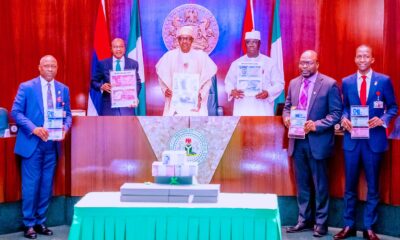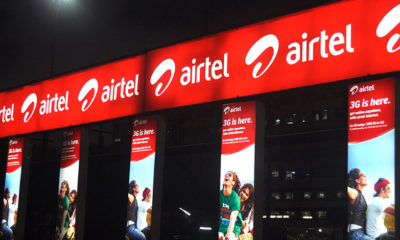- Retail Investors Adopt SPVs for Airtel’s N325.25b IPO
Retail investors have opted for the use of special purpose vehicles (SPVs) to aggregate funds and buy into the ongoing initial public offering (IPO) by Airtel Africa Plc.
Airtel Africa Plc is raising up to N325.25 billion in a combined global and Nigerian IPOs. Airtel Africa, the parent company of Airtel Networks Limited, Nigeria’s second largest telecommunication company, plans to list its shares on the London Stock Exchange (LSE) and Nigerian Stock Exchange (NSE).
Airtel Africa, a subsidiary of India’s Bharti Airtel Limited, is offering between 501.13 million ordinary shares of $1 each and 716.41 million ordinary shares of $1 each at indicative price range of between N363 per share and N454 per share.
The IPO, being undertaken through a book building, is, however, restricted to qualified institutional investors and high net worth investors (HNIs). Under the rules in Nigeria, a high networth investor is defined as an individual with net worth of at least N300 million excluding automobiles, homes and furniture. This implies that only individuals and institutions with a minimum assessable investment of N300 million can participate directly in the IPO.
The IPO, which opened on June 18, 2019, is scheduled to close on Thursday June 27. The announcement of offer price, offer size, publication of the pricing statement and allotment of ordinary shares will hold on June 28, 2019. The allotment of ordinary shares and crediting of ordinary shares to the Central Securities Clearing System (CSCS) accounts of successful subscribers will take place on June 29 and July 3.
Airtel Africa is scheduled to be admitted to the official list and begin trading on the NSE on July 4. Already authorities at the NSE and Securities and Exchange Commission (SEC) have approved the listing of the resultant shares.
Checks indicated that investment houses have created SPVs which are aggregating subscriptions from retail investors. While the arrangements differ slightly, the investment firms appear to be using the same template for the SPVs, suggesting a sort of industry consensus on the approach to bypass the high net worth restriction.
Under the arrangements, the SPV will aggregate demand from retail investors and use its net worth to subscribe to the shares on behalf of the retail investors. Once successful and its account credited with the IPO shares, the investment firm will cross the shares into the CSCS accounts of the retail investors at the commencement of trading on the NSE.
The minimum share subscription by most SPV is 500 ordinary shares while the price is fixed at the ceiling of N454 per share, implying a minimum subscription of N227,000. Under the terms, the in-house allocation may be done on a pro-rata basis in the event of under allotment of the full subscription while the retail investors will bear all transfer charges. However, in the event that the clearing price is lower than N454, the excess amount will be refunded to the investors.
Experts who spoke on the SPVs said there was nothing legally wrong with the use of SPV to bypass the high net worth restriction, noting that the SPV is similar to collective investment by all the retail investors.
Nigerian market has substantial retail investors. Latest data from the NSE indicated that domestic retail investors accounted for 42 per cent of total domestic transactions at the Nigerian equities market. The five-month report ended May 31, 2019 showed retail investors led the market in two months.
SPVs are using attractive dividend policy to woo retail investors, who characteristically are usually excited by dividend-paying companies. Airtel Africa aims to distribute a minimum of 80 per cent of its consolidated free cash flow to its shareholders as cash dividend, subject to a ratio of net debt to underlying earnings before interest, tax, depreciation and amortisation (EBITDA) of between two times to 2.5 times being maintained. Dividend distribution is also subject to all regulatory, statutory and monetary restrictions.
The net proceeds from the IPO will be used to offset the company’s debt. The board of Airtel Africa said the IPO and the listing on the NSE would encourage operational discipline through the establishment of an independent capital structure and governance framework following the successful turnaround of the group’s operations.
According to the company, the IPO and listing would facilitate measurement of the group’s continued positive performance against holistic, publicly disclosed metrics as it enters a strong free cash flow phase.
The company is also expected to enter an optimal capital structure and enable improved leverage for greater flexibility in pursuing growth opportunities going forward while also having access to the capital markets and diversification of its capital base to support continued growth.
While the Nigerian offer shall be issued in Naira, Airtel Africa has avowed that the rights attaching to the shares allotted under the Nigerian offer shall be uniform in all respects and they will form a single class for all purposes, including with respect to voting and for all dividends and other distributions thereafter declared, made or paid on the ordinary share capital of the company.
According to the company, on a show of hands every holder of ordinary shares in the capital of the company who is present in person shall have one vote and on a poll every shareholder present in person or by proxy shall have one vote per ordinary share.
Airtel Africa added that except as provided by the rights and restrictions attached to any class of shares, shareholders will under general law be entitled to participate in any surplus assets in a winding up in proportion to their shareholdings.
“There are no restrictions on the free transferability of the Nigerian offer shares,” Airtel Africa stated, adding that no expenses will be charged by the company to any investor who purchases the Nigerian offer shares.
In its prospectus, Airtel Africa however cautioned that shareholders may be subject to exchange rate risk. According to the company, the investment by Nigerians may be subject to exchange rate risks.
“The ordinary shares are, and any dividends to be paid in respect of them will be, denominated in United States (US) dollars however the currency of issue is United Kingdom Pounds Sterling, for the Global Offer, and is naira, for the Nigerian Offer. An investment in the ordinary shares, by an investor whose principal currency is not US dollars, such as Nigerians, is exposed to foreign currency exchange rate risk. Thus, fluctuations in the exchange rate between Pounds Sterling and naira could materially and adversely affect the prices of the ordinary shares listed on the NSE. Any depreciation of US dollars in relation to the Naira currency will reduce the value of the investment in the ordinary shares or any dividends in foreign currency terms,” the company stated.

 Billionaire Watch3 weeks ago
Billionaire Watch3 weeks ago
 Startups4 weeks ago
Startups4 weeks ago
 News4 weeks ago
News4 weeks ago
 News4 weeks ago
News4 weeks ago
 Bitcoin4 weeks ago
Bitcoin4 weeks ago
 Naira4 weeks ago
Naira4 weeks ago
 Forex3 weeks ago
Forex3 weeks ago
 Treasury Bills4 weeks ago
Treasury Bills4 weeks ago























